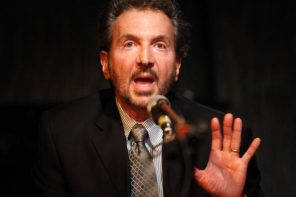If you live in California and are a Republican, attend church at least once a week, hold socially conservative views, and are 65-years-old or older, you most likely voted “Yes” on Proposition 8 to repeal marriage equality for your gay and lesbian neighbors. In addition, you are most likely male and probably even know someone, or are related to someone, who is gay or lesbian—but you still supported Prop 8.
Those are the four voter characteristics – party affiliation, religiosity, political ideology and age – that played the most significant role in the passage of Prop 8 last November according to a new study released by the National Gay and Lesbian Task Force.
“These variables had bigger effects and were more important than other voter characteristics that have received a lot of attention such as race, gender or personal knowledge of lesbian and gay men,” said Patrick Egan, Ph.D., an assistant professor of politics at New York University and one of the co-authors of the study.
The survey, commissioned by the Evelyn & Walter Haas, Jr. Fund, also debunks the notion that widespread support for the measure from the African-American community is what pushed passage of Prop 8. Kenneth Sherrill, Ph.D., a professor of Political Science at Hunter College and a study co-author, called a widely reported exit poll , conducted by NEP, showing that 70 percent of African-Americans supported Prop 8 “an outlier” that was not supported by other, subsequent polls of African-American voters.
Instead, the Task Force report showed African American support for the measure was strong, ranging from 57 to 59 percent, but not as overwhelming as the exit poll numbers.
Andrea Shorter, director of Marriage for All, said even though a majority of African-Americans voted in favor of Prop 8, the lower numbers could help remove “the wedge between the black and LGBT community by wrongly blaming African-Americans for the passage of Proposition 8.”
Also helping to remove that wedge is the fact that the majority of African-Americans voting in favor of the measure did so, not because of their race, but because of their religious beliefs.
“As a whole, 43 percent of Californians attend religious services at least once per week. The share of African-Americans attending services with this frequency is much higher: 57 percent. This difference in frequency of attendance between African-Americans and the rest of the population is statistically significant,” the authors write.
Jaime Grant, director of the National Gay and Lesbian Task Force Policy Institute, called the poll’s results around weekly religious service attendance a “wake up call” for the LGBT community.
“We must do a better job organizing in faith-based communities. We need to think about where we organize and how we present our stories to improve our reach into faith-based communities. Since we know people of faith are most influenced by conversations with other people of faith, we must continue to activate the very significant population of LGBT people of faith who are part and parcel of that population of weekly church goers and encourage them to have meaningful conversations in the pews.”
Those conversations, however, may have limited effect on those who are mostly driven by political affiliation, ideology, age, or religious beliefs. Knowing a gay or lesbian person, the study found, had little impact on how people voted.
“Partisanship and ideology trump the impact of knowing an LGBT person,” said Sherrill. “For example, about two-thirds of California’s conservatives said they knew or were related to someone who is LGBT, and about four out of five of them voted for the referendum. Among conservatives who didn’t know an LGBT person, four out of five persons also voted for the referendum.”
The pattern held for Republicans with four out of five voting for the referendum whether they knew gay and lesbian people or not.
“At least in terms of marriage equality, opposition to our rights isn’t personal, it’s ideological and partisan,” Sherrill concluded.
The question could be asked, then: If knowing gay or lesbian people doesn’t affect how conservatives vote, what’s the point in coming out to them or talking with them?
“There is a very big difference between knowing gay people and having serious conversations with us about our lives,” Sherrill said. “Some of what our findings lead to is the challenge to have more conversations with more people, whether it be through mass media in terms of ads, or in terms of face- to-face conversations with people we know well and talking about our lives in their full richness so people develop a greater understanding.”
Sherrill pointed out the bright spot in the whole Prop 8 disappointment for the LGBT community is the trend of shifting support for marriage rights. Eight years ago, Proposition 22, a measure that imposed a statewide ban of same-sex marriages, won by a 61 to 39 percent margin. Just 52 percent of voters approved of Prop 8, giving the LGBT community a gain in support of 9 percentage points.
“Support for marriage equality in California has increased by about 1 percent a year since 2000, and virtually every demographic trend is on our side,” Sherrill said. “That’s good news.”



